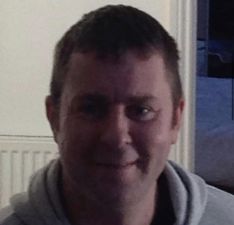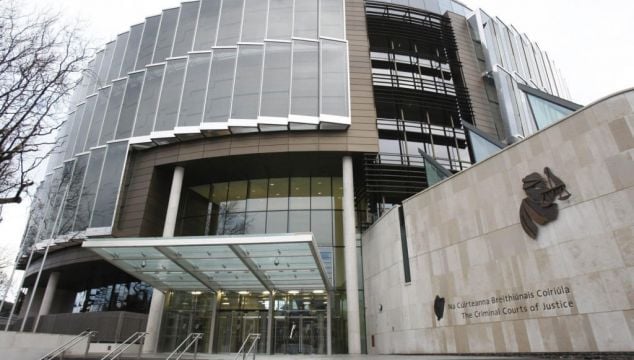A man who entered a bus lane before it was permitted, leading to a fatal collision with a pedestrian crossing the road, has been given a suspended sentence for careless driving.
Carl Scully (34) was driving in the bus lane in order to take an upcoming turn when he struck Anthony Hanney (61) as he crossed the road towards his home with his groceries.
Dublin Circuit Criminal Court heard that Mr Hanney, who was killed instantaneously, was a much-loved father and grandfather. He was described by his son as a good and kind-hearted man.
Scully, of Glenhill Road, Finglas, pleaded guilty to careless driving causing the death of Mr Hanney at Finglas Road on December 12th 2018.
He has 15 previous District Court convictions from 2009 and 2013. He has two prior road traffic convictions for failing to display tax.
In a victim impact statement prepared on behalf of himself and his siblings, Mr Antony Hanney Junior told the court that the loss of their father had a brutal effect on the family, causing catastrophic life changes and leading to mental health issues for the siblings.
“A once very close family has been ripped apart by this tragedy,” said Mr Hanney Jr. He described the horror of having to identify his father’s body and said he has struggled to sleep with that image.
“It has changed me as a person for the rest of my life,” he told the court.
Closure
He said the family understood the circumstantial and accidental nature of the incident but hoped today was the start of some closure for the family. “There are no winners in court today,” he said.
In sentencing, Judge Pauline Codd noted the emotional and psychological effect on the Hanney family on the sudden loss of their father. She said they had been left to endure shock, grief and trauma.
She extended her condolences to the family, whom she said had behaved with stoicism and respect throughout the sentencing.
Judge Codd said in cases such as this, the measure of a sentence was not a measure of the value of a deceased person's life, but of the accused person's culpability in the circumstances of the case.
She took into account testimonial letters handed into court on Scully’s behalf attesting to the toll the incident had on him. She noted medical reports and a psychological report prepared for the court.
She said his remorse and stress about causing Mr Hanney’s death appeared to be genuine.
She noted aggravating features included driving in the bus lane in advance of exiting at a particular lane. She said he gave as his reason his familiarity with the area and the difficulty of crossing later.
The point of impact was five metres from where he could have entered the lane legitimately.
She noted that unfortunately Mr Hanney was crossing a busy road in a dangerous place where there was no pedestrian crossing and pedestrians might not be expected. She said the court heard there were pedestrian crossings 300 metres north and 120 metres south of where he was crossing.
Judge Codd set a headline sentence of 10 months, noting Scully’s guilty plea, his remorse and emotional distress. She noted from the reports before the court that Scully had not coped well with the consequences of his actions and would have to live with his inattention on that morning.
She imposed a six-month suspended sentence and ordered him to be of good behaviour and keep the peace for one year. She also imposed an 18-month driving disqualification but noted Scully had already voluntarily taken a decision to stop driving.
Garda Paul Doona told Edward Doocey BL, prosecuting, that Mr Hanney had been crossing the Finglas Road at the Clearwater Shopping Centre at midday. He was not at a pedestrian crossing.
Witnesses described how Mr Hanney, who was carrying a plastic bag and making his way to Finglas village, had crossed the first side of the road, made his way across the grass meridian and crossed the second lane of traffic when he was struck by Scully’s car which was in the bus lane.
Mr Hanney was hit by the passenger side of the car as Scully attempted to swerve to avoid him.
Gda Doona said a forensic collision report showed that Scully, who was intending to take an upcoming filter road to Glenhill estate, was travelling at between 53.3 and 63.8 km/ph at the time at the point of impact. The speed limit in the area was 60 km/ph.
The garda said that a speed analysis for cameras showed that 330 metres prior to the incident, Scully had been travelling at 132 km/ph, but the car had slowed before the incident occurred.There were no marks consistent with emergency braking at the point of collision.
The investigation found Scully was not using his phone at the time and was not intoxicated. Scully and others alerted the emergency services after the collision. He remained at the scene.
Mr Hanney died instantaneously of multiple catastrophic injuries.
Scully told gardaí he had been driving the car. He said a person had suddenly skipped out in front of him in the bus lane “from nowhere,” and he simply could not react in time. He said he was travelling at about 70 km/ph.
Bus lane
He said he had just moved into the bus lane as he was taking an upcoming turn. He said it was difficult to get into the correct lane later due to the constant flow of traffic.
Mr Doocey said the carelessness arose from Scully travelling at speed in a bus lane.
Conor Devally SC, defending, said Scully had been intending to take an upcoming turn and had prematurely gone into the bus lane as experience had shown it was difficult to make the manoeuvre shortly afterwards where it is permitted by the road markings.
He said Scully had driven too fast prior to this event but had slowed before the collision and driven in the bus lane shortly in advance of where he was permitted. He said this was not an excuse but submitted in order to gauge culpability.

Counsel said Scully has suffered significant mental health issues, and sadly his relationship has broken down. He maintains strong connections with his family, some of whom wrote to the court.
Mr Devally said Scully is currently living between the homes of relatives and is employed. He has given up his driving licence. He offered his profound sympathies to the Hanney family and appreciated a letter a member of the family wrote to him.
The case had been adjourned for a number of weeks so a psychiatric report could be completed.
In his victim impact statement, Mr Hanney Jnr described his much-missed father as a good, kind-hearted man who had overcome his own struggles in life and who made his family feel safe just by being in his company.







